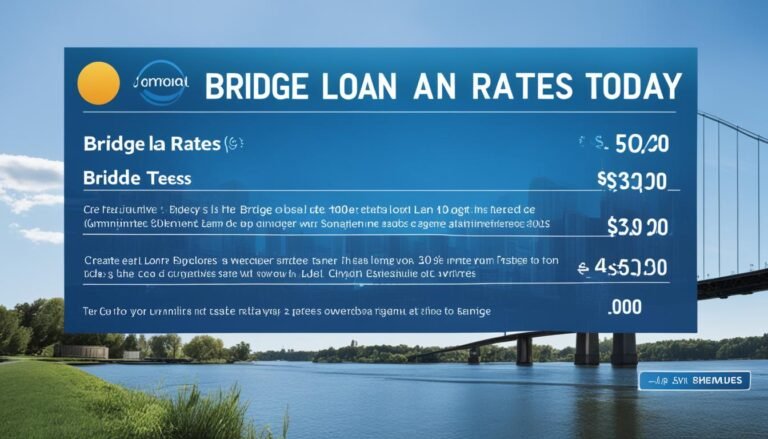Private money lenders in Kansas play a vital role in the state’s real estate market by providing quick funding options for various projects. Whether you’re a seasoned investor or just starting, these lenders offer flexible financing solutions to help you achieve your investment goals. With their expertise in hard money loans, they can provide the capital you need for fix and flip projects, rental properties, commercial developments, and bridge loans.
Kansas, known for its growing real estate market, offers a plethora of opportunities for investors. With an average home sale price of $260,366 and a wide range of available inventory, there is room for profitable ventures. While traditional loans may have strict eligibility requirements, private money lenders in Kansas understand the unique needs of investors and provide accessible financing options.
Hard money loans typically require a good credit score and a 20% down payment, but they offer several advantages that make them attractive to real estate investors. These loans are secured by the value of the property, allowing for quick approval and funding. Although interest rates may be higher, the speed and flexibility of hard money loans make them an ideal choice for investors looking to seize opportunities in the market.
Hard Money Loan Benefits for Real Estate Investments
When it comes to real estate investments in Kansas, hard money loans offer numerous benefits for investors. These loans provide accessible and quick funding options for short-term projects, making them ideal for those looking to purchase, repair, and sell properties or improve and refinance into lower interest rate loans.
One of the key advantages of hard money loans is their accessibility to borrowers with unique financial situations. Unlike traditional loans that heavily rely on credit scores and income verification, hard money loans are secured by the value of the property. This means that even borrowers with less-than-perfect credit scores or inconsistent income sources can still qualify for these loans.
Another benefit of hard money loans is the flexibility they offer in loan terms. Unlike traditional lenders with strict guidelines and lengthy approval processes, private money lenders are more flexible and can tailor loan terms to meet the specific needs of the borrower and the project. This flexibility allows investors to structure their loans in a way that aligns with their investment goals and timelines.
While hard money loans may come with higher interest rates compared to traditional loans, the benefits they offer outweigh the cost. These loans provide the necessary funds quickly, allowing investors to capitalize on time-sensitive investment opportunities. Moreover, hard money loans are generally short-term in nature, enabling investors to focus on completing their projects and securing profits within a shorter timeframe.
To visualize the benefits of hard money loans, take a look at the image below:
Overall, hard money loans prove to be an excellent financing option for real estate investors in Kansas. Their accessibility, quick funding, and flexibility in loan terms make them a valuable tool for investment buyers looking to maximize their profits in the real estate market.
North Oak Investment – Reliable Hard Money Lender
When it comes to reliable hard money lenders in Kansas City, look no further than North Oak Investment. With over four decades of experience in the industry, North Oak Investment has earned a reputation for their expertise and professionalism. They specialize in providing rehab loans and other financing options for real estate investments.
One of the key advantages of working with North Oak Investment is their flexibility. Unlike many other lenders, they have no minimum or maximum property value requirements. Whether you’re looking to finance a residential property, townhome, or commercial real estate venture, North Oak Investment can provide the funding you need.
Another distinguishing feature of North Oak Investment is their inclusive approach to lending. They do not have any specific credit score or income requirements, making it easier for a wide range of borrowers to qualify for their loans.
For those involved in rehabbing properties, North Oak Investment offers a maximum loan amount of $275,000. They can lend up to 80% of the property value after repairs, giving you the capital necessary to undertake extensive renovations and improvements.
When choosing a hard money lender for your real estate investments, reliability and trustworthiness are crucial factors. North Oak Investment has demonstrated their commitment to their clients since 1972, providing a track record of success and satisfied customers.
If you’re in need of a hard money loan in Kansas City, consider North Oak Investment. With their extensive experience, flexible lending options, and dedication to customer satisfaction, they are a top choice for real estate investors in the area.
Investor Funding – Flexible Loan Options for Kansas City
Investor Funding is a premier lending company that specializes in providing flexible loan options for real estate investors in the Kansas City Missouri area. With their expertise and experience, they offer customized financing solutions catered to the unique needs of investors.
Whether you’re looking to invest in commercial real estate, multi-family properties, or single-family homes up to four units, Investor Funding has you covered. They understand the specific requirements of each property type and can provide the necessary funding to help you achieve your investment goals.
One of the key advantages of choosing Investor Funding is their flexible loan terms. They offer loan terms ranging from 6 to 36 months, allowing you to choose a repayment schedule that aligns with your investment strategy. This flexibility gives you the freedom to maximize your returns without being constrained by rigid payment timelines.
When it comes to credit score requirements, Investor Funding is accommodating. For fix and flip properties, they have a minimum credit score requirement of 500, making it accessible to a wide range of investors. For rental properties, the minimum credit score requirement is 600, ensuring that even those with slightly lower credit scores can still benefit from their loan options.
Another significant advantage of working with Investor Funding is their financing options. They offer financing up to 100% for fix and flips, allowing you to fund your entire project without the need for a substantial upfront investment. For rental properties, they provide financing up to 90%, giving you the flexibility to acquire and renovate properties while preserving your capital.
Investor Funding understands the fast-paced nature of real estate investments, and they strive to provide quick funding solutions. With their streamlined processes and efficient underwriting, you can expect a smooth and expedited loan approval process, ensuring that you can seize investment opportunities without delays.

Experience the benefits of working with Investor Funding and their commitment to helping real estate investors succeed. With their flexible loan options, accommodating credit score requirements, and expertise in various property types, you can confidently pursue your investment ventures with their support.
Fund That Flip – Short Term Bridge Loans for Flipping Properties
Fund That Flip is a reputable private money lender based in New York, specializing in providing short-term bridge loans for real estate investors aiming to flip properties. With their extensive experience in the industry, they offer financing options in most states, including Kansas, allowing investors to access the funds they need to execute profitable flipping projects.
One of the key features of Fund That Flip’s bridge loan program is their flexible loan-to-cost and loan-to-after repair value ratios. Borrowers can secure up to 80% of the project’s cost and 70% of the property’s value after repairs, enabling them to cover a significant portion of their investment expenses.
Competitive interest rates starting at 9.99% further make Fund That Flip an attractive choice for real estate investors. By offering favorable rates, they help borrowers maximize their profits and optimize their return on investment.
In addition to financing for property acquisition and repairs, Fund That Flip also provides construction financing. This allows investors to conveniently access the funds needed to complete necessary renovations or construction, ensuring a smooth and efficient flipping process.
To secure a bridge loan from Fund That Flip, borrowers are required to provide a 10% down payment. This down payment serves as a demonstration of the borrower’s commitment to the project, mitigating the lender’s risk and increasing the likelihood of loan approval.
Loan terms from Fund That Flip typically range from 12 to 24 months, providing investors with ample time to complete their flipping projects and sell the properties for a profit.
Partnering with Fund That Flip can offer real estate investors the financial support they need to successfully navigate the challenges of flipping properties and achieve their investment goals. With their specialized expertise in providing bridge loans, Fund That Flip is a trusted resource for funding real estate ventures.
Easy Street Capital – Nationwide Lending for Real Estate Investors
Easy Street Capital, based in Austin, Texas, is a trusted lending company that offers nationwide lending services to real estate investors, excluding North and South Dakota. With their extensive experience and expertise, Easy Street Capital provides competitive interest rates that range from 6.9% to 10.9%. They require a minimum down payment of 10%, ensuring accessibility for a wide range of investors.
One of the key advantages of partnering with Easy Street Capital is their ability to provide financing for various types of properties. Whether you’re interested in residential, commercial, or industrial properties, Easy Street Capital has you covered. They also offer renovation financing, allowing investors to unlock the potential of distressed properties and maximize their returns.
Notably, Easy Street Capital stands out by not typically charging prepayment penalties for fix and flip loans, providing added flexibility and convenience for investors. This helps to ensure that investors can make timely repayments or pay off the loan early, without incurring unnecessary fees.
When it comes to nationwide lending for real estate investors, Easy Street Capital is a reliable partner that understands the unique needs and challenges of the industry. Their competitive rates, flexible loan options, and commitment to client satisfaction make them a preferred choice for investors looking to secure funding for their real estate ventures.
EquityMax – Decades of Experience as a Hard Money Lender
If you’re looking for a hard money lender with decades of experience, look no further than EquityMax. Founded in 1990 by Brad Emmer, EquityMax is a Florida-based lender that has built a strong reputation in the industry. With their extensive experience, they have gained the expertise to navigate the complexities of real estate financing.
EquityMax operates nationwide, providing their services throughout the United States. Whether you’re looking to invest in single-family homes, multi-unit residential properties, condos, townhomes, commercial properties, or industrial warehouses, EquityMax has you covered. They understand the unique needs of various real estate projects and can tailor financing solutions to fit your specific requirements.
As a direct lender, EquityMax has the advantage of making decisions quickly and efficiently. They have the authority to originate loans to individuals, LLCs, corporations, land trusts, and self-directed IRAs. This flexibility allows them to work with a wide range of borrowers and offer financing options that are customized to their needs.
One of the standout features of EquityMax is their inclusivity. They do not require a minimum credit score, making their loans accessible to individuals who may have less-than-perfect credit. Additionally, EquityMax does not impose prepayment penalties, giving borrowers the freedom to pay off their loans ahead of schedule without incurring any additional fees.
EquityMax’s dedication to their clients and their commitment to excellence have made them a trusted choice for real estate investors seeking hard money financing. With their decades of experience in the industry, you can rely on EquityMax to provide the expertise and support you need to succeed in your real estate ventures.

In Summary:
- EquityMax is a Florida-based hard money lender with decades of experience in the industry.
- They offer financing for various real estate projects, including single-family homes, multi-unit residential properties, condos, townhomes, commercial properties, and industrial warehouses.
- EquityMax is a direct lender, providing quick decision-making and customized financing options for borrowers.
- They do not require a minimum credit score and have no prepayment penalties.
LendSimpli – Tampa-based Hard Money Lender for Real Estate Investors
LendSimpli is a reliable hard money lender based in Tampa, Florida, catering to real estate investors nationwide. With their extensive lending experience, LendSimpli offers flexible loan options tailored to meet the unique needs of investors looking for quick financing solutions.
Loan Options:
- Loan Amount: LendSimpli provides loans up to $5 million for 1-4 unit properties and up to $20 million for 5+ unit properties. This ensures that investors have access to substantial funding for both small and large-scale real estate projects.
- Loan Terms: Their loan terms range from 12 to 24 months, allowing investors ample time to complete their projects and maximize their returns.
- Interest Rates: LendSimpli offers competitive interest rates starting at 8.50%. The flexibility of interest-only payments during the loan term can help investors manage their cash flow effectively.
Borrower Requirements:
- Credit Score: LendSimpli requires a minimum FICO credit score of 660, ensuring that borrowers have a good credit history.
- Experience: While not mandatory, LendSimpli prefers borrowers with a track record of at least two real estate transactions in the past three years.
LendSimpli’s nationwide lending capabilities make them a reliable partner for real estate investors seeking hard money loans. Whether you’re looking to fix and flip properties or pursue other real estate investment opportunities, LendSimpli’s flexible loan options and competitive rates can help fuel your success.
HouseMax Funding – Asset-Based Loan Financing for Real Estate Transactions
HouseMax Funding, headquartered in Austin, Texas, is an esteemed lending company with a strong presence in the national real estate industry. They specialize in providing asset-based loan financing to investors for a wide range of real estate transactions. Whether you’re looking for fix and flip loans, new construction loans, or rental loans, HouseMax Funding has tailored solutions to meet your specific needs. Additionally, they have a wealth of expertise in multi-family and commercial properties, making them a trusted partner for investors in these sectors.
When working with HouseMax Funding, you can expect several key benefits. First and foremost, they offer loan amounts of up to 75% of the after-repair value, allowing you to access the necessary funds to facilitate your real estate projects. Furthermore, their origination charges are highly competitive, ensuring that you receive the best value for your investment. Lastly, HouseMax Funding prides itself on efficient turnaround times, with closing processes completed in 10 business days or less.
Why Choose HouseMax Funding?
- Extensive experience in the real estate industry
- Specialization in asset-based loan financing
- Variety of loan options for different real estate transactions
- High loan-to-value ratios for maximum funding
- Competitive origination charges
- Quick closing times of 10 business days or less
Partnering with HouseMax Funding ensures that you have a reliable and trustworthy financial resource to support your real estate ventures. Their expertise, flexibility, and dedication to customer satisfaction make them an excellent choice for investors seeking asset-based loan financing. Explore the possibilities with HouseMax Funding and unlock the potential of your real estate projects today.
Conclusion
Private money lenders in Kansas play a vital role in the real estate investment market by offering flexible financing options for investors. With hard money loans, investors can quickly access funds to finance a variety of projects, such as purchasing, renovating, and selling properties, allowing them to maximize their profits.
Each private money lender in Kansas has their own unique eligibility requirements and loan terms, so it’s important for investors to thoroughly research and compare their options to find the best fit for their specific needs and investment goals. Whether it’s a fix and flip loan, rental property financing, or a bridge loan, there are lenders available to support investors in achieving their real estate investment objectives.
Hard money loans are designed to be accessible to borrowers with diverse financial situations, making them an attractive option for both experienced investors and those new to the real estate market. These loans are secured by the value of the property, allowing lenders to focus more on the property’s potential rather than the borrower’s credit score or income. As a result, private money lenders in Kansas can provide funding when traditional banks may not be able to.
In summary, private money lenders in Kansas offer a valuable resource for real estate investors seeking quick financing, flexibility, and the ability to capitalize on real estate opportunities. Whether investors are looking to purchase, renovate, or bridge properties, hard money loans can be a beneficial tool in their investment journey. By partnering with reputable private money lenders, investors can unlock the potential of their real estate investments and achieve their financial goals.
FAQ
What are the benefits of hard money loans for real estate investments?
Hard money loans provide quick funding for short-term projects, are accessible to borrowers with unique financial situations, and allow flexibility in loan terms. Additionally, they are secured by the value of the property and are ideal for investment buyers looking to purchase, repair, and sell properties or improve and refinance into lower interest rate loans.
What is North Oak Investment known for as a hard money lender?
North Oak Investment is a reputable hard money lender based in Kansas City. They have been in the business since 1972 and offer rehab loans and other real estate investment financing. Some highlights of their lending business include no minimum or maximum property values, financing for residential, townhomes, and commercial properties, and no specific credit score or income requirements.
What types of properties does Investor Funding specialize in?
Investor Funding focuses on providing loans in the Kansas City Missouri area but can lend outside of Kansas City as well. They specialize in commercial real estate, multi-family properties, and single-family homes up to four units. They offer flexible loan terms ranging from 6-36 months and have minimum credit score requirements of 500 for fix and flip properties and 600 for rental properties.
What are the key details of Fund That Flip’s bridge loan program?
Fund That Flip is a private money lender based in New York that offers short-term bridge loans for real estate investors looking to flip properties. They provide financing in most states, including Kansas. Some key details about their bridge loan program include up to 80% loan-to-cost and 70% loan-to-after repair value ratios, competitive interest rates starting at 9.99%, the ability to finance construction projects, and loan terms of 12-24 months.
What are the lending options provided by Easy Street Capital?
Easy Street Capital is a lending company based in Austin, Texas that offers nationwide lending for real estate investors, except in North and South Dakota. They provide financing for various property types and allow renovation financing. They have competitive interest rates ranging from 6.9% to 10.9%, require a minimum down payment of 10%, and do not typically charge prepayment penalties for fix and flip loans.
What types of properties does EquityMax focus on as a hard money lender?
EquityMax, founded in 1990 by Brad Emmer, is a Florida-based hard money lender with the ability to lend throughout the United States. They focus on single-family homes, 1-4 multi-unit residential properties, condos, townhomes, commercial properties, and industrial warehouses. They do not require a minimum credit score and have no prepayment penalties.
What are the eligibility requirements for LendSimpli as a hard money lender?
LendSimpli is a hard money lender based in Tampa, Florida that lends nationally in most states. They offer loans up to $5 million for 1-4 unit properties and up to $20 million for 5+ unit properties. Their loan terms range from 12-24 months, and they require a minimum FICO credit score of 660. They prefer borrowers with at least two transactions in the past three years.
What makes HouseMax Funding stand out as a lending company?
HouseMax Funding is a lending company based in Austin, Texas, with a national footprint in the real estate industry. They provide asset-based loan financing to investors for various real estate transactions. Some key highlights include lending up to 75% of the after-repair value, competitive origination charges, and quick closing times of 10 business days or less.
What financing options do private money lenders in Kansas offer?
Private money lenders in Kansas offer flexible financing options for real estate investors. Hard money loans provide quick funding for various projects, allowing investors to purchase, renovate, and sell properties for quicker profits. Different lenders have unique eligibility requirements and loan terms, but overall, hard money loans are accessible to borrowers with diverse financial situations. It’s important for investors to explore different lenders and choose the one that best suits their specific needs and investment goals.



























































